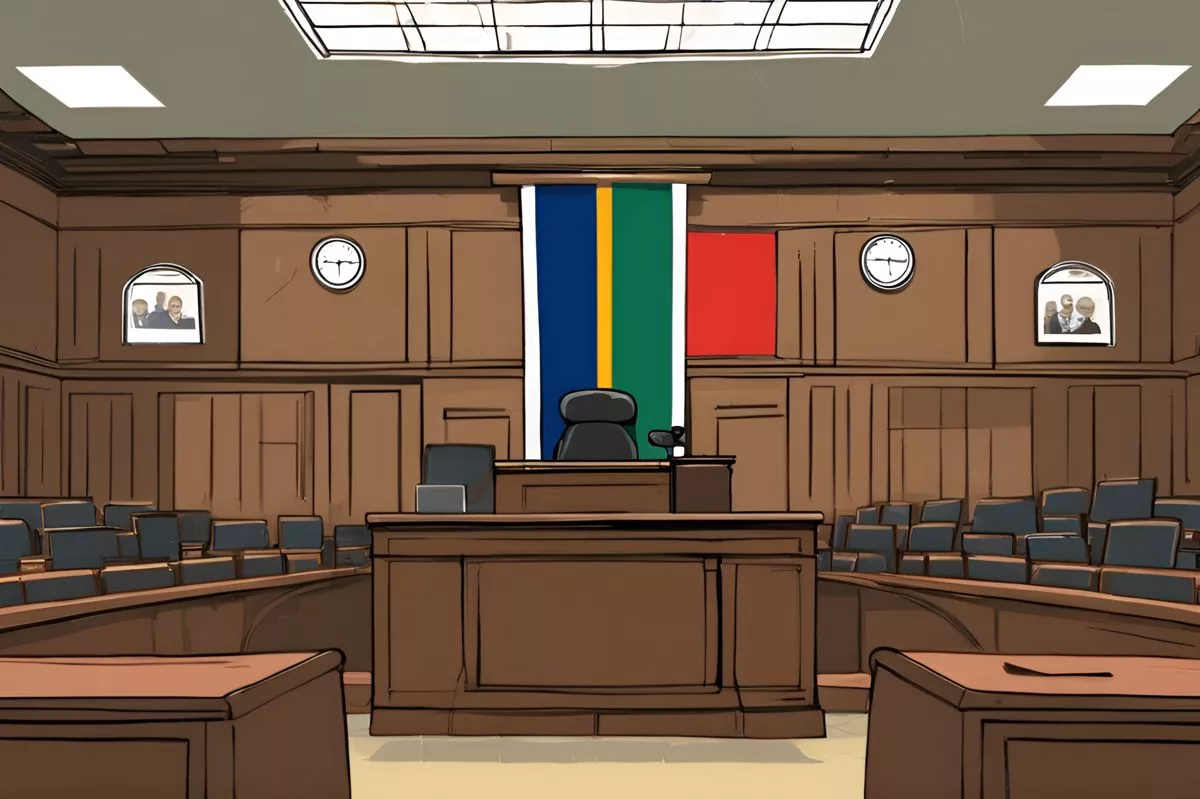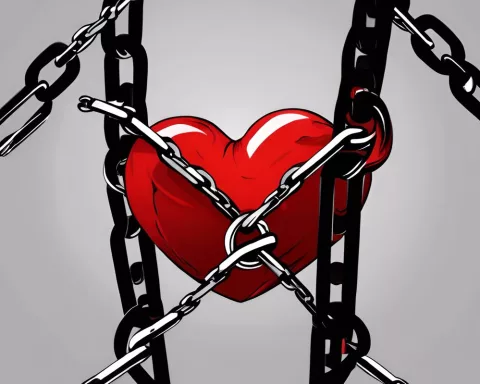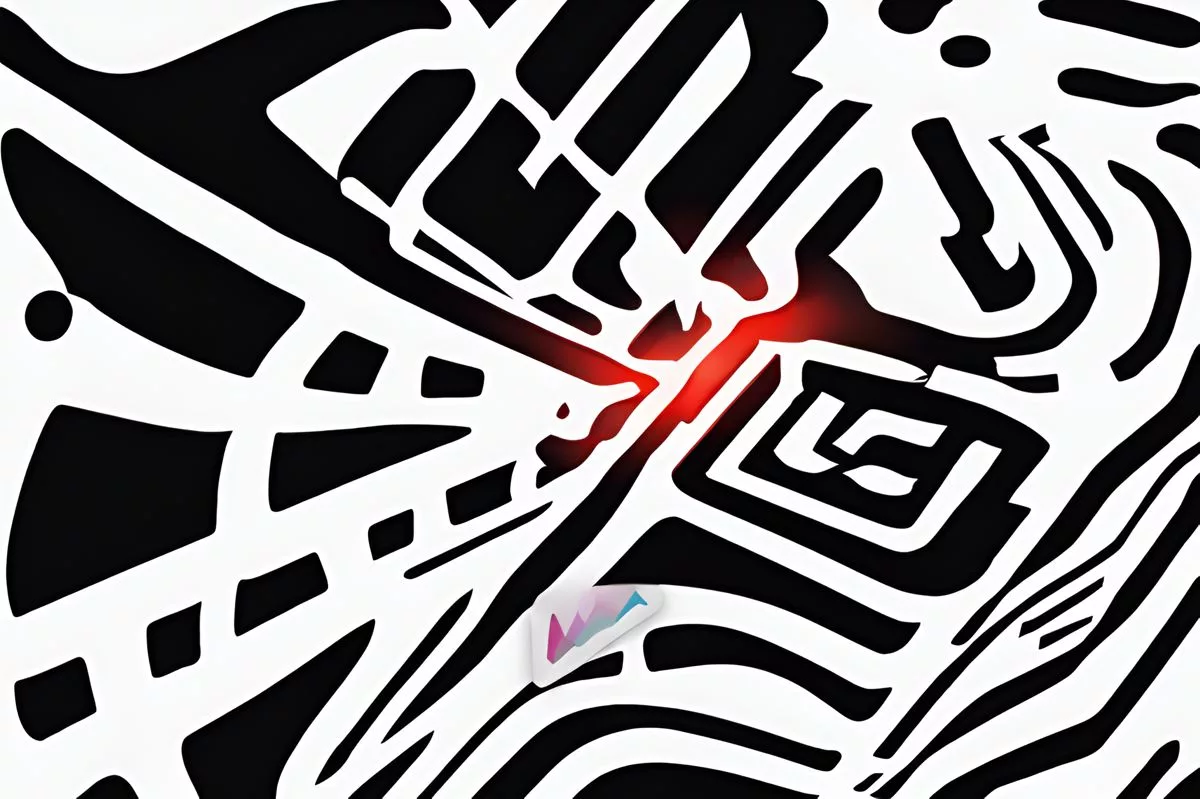The criminal justice system in South Africa is dedicated to protecting its community members, as shown by the recent sentencing of Hlajoane Shakhale and Thabang Molapisi to life and 18 years in prison, respectively. The police and prosecutors in the North West province work tirelessly to hold criminals accountable, particularly in cases involving vulnerable groups like women and children. The swift response and stern punishments demonstrate the judiciary’s commitment to enforcing justice, fostering a culture of accountability and deterrence against crime.
Unwavering Commitment to Justice: A Close Look at Criminal Cases in South Africa. The recent sentencing of Hlajoane Shakhale and Thabang Molapisi in Mogwase, South Africa showcases the legal system’s unwavering dedication to protect its community members. The sentences delivered were substantial, matching the severity of the offenses, and send a powerful message that such actions will be met with severe penalties, showcasing the judiciary’s commitment to enforcing justice.
The Vigilant Pursuit of Accountability
Justice often manifests itself not in sweeping legal actions, but through meticulous, systematic, and persistent pursuit of responsibility. Such an instance is evident in the [North West High Court](https://capetown.today/western-cape-high-court-dismisses-santacos-application-against-city-of-cape-town-and-wcg/) in Mogwase, South Africa where two substantial sentences were recently delivered, showcasing the legal system’s unwavering dedication to protect its community members.
Under the diligent leadership of the North West Provincial Police Commissioner, Lieutenant General Sello Kwena, and Director of Public Prosecution, Dr. Rachel Makhari, the court’s decision on May 15, 2024, to sentence Hlajoane Shakhale and Thabang Molapisi to life was warmly welcomed.
Shakhale, a 43-year-old Lesotho native, was found guilty for the murder of his girlfriend, Dimpho Jeanet Matlhabe. The tragic incident took place on October 8, 2022, after both left a tavern in Ramoga village near Mogwase. A disagreement turned violent when Shakhale demanded that Matlhabe go home with him to Lesetlheng village, a request Matlhabe courageously declined. Infuriated, Shakhale attacked and abandoned Matlhabe roadside, where she was found by passers-by the next day. The police promptly associated Shakhale with the murder and arrested him.
A Steadfast Fight Against Crime
In another case, Thabang Molapisi, a 27-year-old, received an 18-year prison sentence for a horrific crime committed in Boons. The victim, Aleta Moloko, a 78-year-old woman, was initially reported missing. However, the case took a somber turn when her body was found at her home. Molapisi was detained after he was caught selling items stolen from Moloko’s house, leading to his involvement in the murder.
These two cases underscore the relentless efforts of the police and prosecutors in the North West province. Their commitment to justice mirrors a holistic approach to crime-solving that places the safety and wellbeing of its citizens, especially vulnerable groups like women and children, at the forefront.
The South African justice system‘s two crucial aspects are evident from these cases. Firstly, it is the swift response and subsequent actions by the police upon discovering these crimes. In both situations, the suspects were arrested promptly, demonstrating their competence and professionalism.
Upholding the Rule of Law
Secondly, these verdicts underscore the courts’ firm position against heinous crimes. The sentences delivered were substantial, matching the severity of the offenses. This stern response sends a powerful message that such actions will be met with severe penalties, showcasing the judiciary’s commitment to enforcing justice.
The execution of these cases reveals the strength of South Africa’s criminal justice system. The investigators’ careful work, the unwavering dedication of the prosecutors, and the courts’ definitive rulings all contribute to a system that is strict on crime and relentless in its pursuit of justice.
Lieutenant General Sello Kwena and Dr. Rachel Makhari’s praise for the police and prosecutors involved in these cases highlights the importance of teamwork and cooperation in delivering justice. This well-earned acknowledgment not only celebrates the outcomes of these individual cases but also underscores the wider societal implications.
The Ripple Effect of Justice
Efforts to combat crime foster a culture of accountability and deterrence. By ensuring the guilty are appropriately punished, society is reassured that the rule of law prevails and crime will face zero tolerance.
While these cases are indeed disturbing, they offer valuable insights into the function of the criminal justice system. South Africa’s fight against crime is ongoing, with its law enforcement agencies spearheading the efforts. The outcomes of these cases represent not only justice for the victims but also a stern warning to potential criminals. The message is unequivocal: crime will not be rewarded, and justice, regardless of the time it takes, is never withheld.
What is the recent criminal case in Mogwase, South Africa?
Hlajoane Shakhale and Thabang Molapisi were sentenced to life and 18 years in prison, respectively, for their crimes. Shakhale was found guilty of murdering his girlfriend, while Molapisi was involved in the murder of a 78-year-old woman.
Who led the efforts to prosecute these criminals?
The North West Provincial Police Commissioner, Lieutenant General Sello Kwena, and Director of Public Prosecution, Dr. Rachel Makhari, led the efforts to prosecute these criminals.
What is the commitment of the criminal justice system in South Africa?
The criminal justice system in South Africa is dedicated to protecting its community members, especially vulnerable groups like women and children. It is committed to enforcing justice, fostering a culture of accountability and deterrence against crime.
What are the crucial aspects of the South African justice system?
The swift response and subsequent actions by the police upon discovering these crimes and the courts’ firm position against heinous crimes are the crucial aspects of the South African justice system.
What is the ripple effect of justice in South Africa?
Efforts to combat crime foster a culture of accountability and deterrence. By ensuring the guilty are appropriately punished, society is reassured that the rule of law prevails and crime will face zero tolerance.
What does the recent criminal case in Mogwase, South Africa reveal about the strength of the criminal justice system?
The execution of these cases reveals the strength of South Africa’s criminal justice system. The investigators’ careful work, the unwavering dedication of the prosecutors, and the courts’ definitive rulings all contribute to a system that is strict on crime and relentless in its pursuit of justice.












